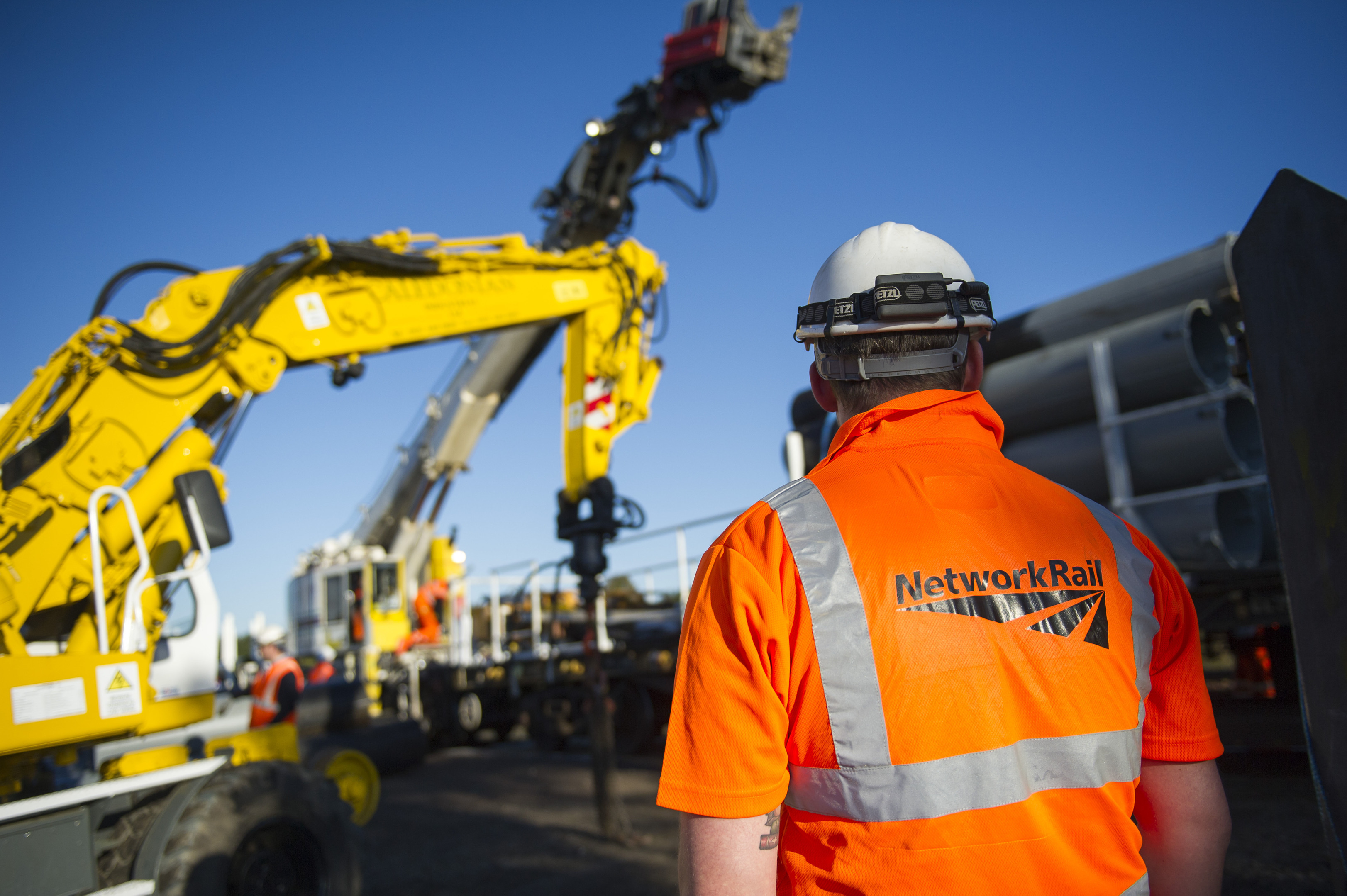
THE collapse of construction giant Carillion has pushed the cost of the Glasgow-to-Edinburgh rail scheme up another £12m.
The estimated final cost of the plan to cut 10 minutes off the train trip between the two cities has climbed from £858m to £870m.
The latest hike can be revealed after weeks of delays and overcrowding on Scotland’s trains, caused by the introduction of new train timetables.
Carillion, which collapsed in June at a cost of £148m to the British taxpayer, was involved in numerous large-scale projects across the UK, including construction work on military bases, hospitals and road and rail projects.
A Network Rail Scotland spokesman said that the Carillion collapse had affected the project.
He said: “We had to halt and then retender the work they were delivering at Edinburgh Waverley – to extend platforms and install a crossover track section.”
The Sunday Post revealed in May that costs had already risen for the Edinburgh Glasgow Improvement Programme (EGIP) by more than £115m – from £742m to £858m.
At the time, rail regulators described the cost increase as “deeply concerning” and revealed they had launched a probe into the delays and budget overruns on the Transport Scotland electrification scheme.
Now regulators and politicians are further concerned that costs have soared again.
The Office of Rail and Road, the independent regulator for Britain’s railways, said: “The current anticipated final cost of the EGIP is £870m – an increase of £12m on the figure Network Rail reported in May.”
Rail industry insiders say some of the increased costs were down to changes demanded by Transport Scotland but also the cost of making changes where the route’s overhead wires and railway bridges were too low to meet current safety standards.
Scottish Labour’s transport spokesman Colin Smyth said: “Scotland’s long-suffering rail passengers have faced utter misery on this line as a result of the failure of ScotRail to introduce new trains when they said.
“Now we learn the cost of the already delayed upgrading of the line has spiralled further out of control and it is passengers and the taxpayer who will have to pick up the bill.
“We need to ensure any inquiry into this shambles gets to the bottom of these delays and rising costs and makes clear who was responsible, ensuring lessons are learned.”
Scottish Liberal Democrat transport spokesperson Mike Rumbles MSP said: “The cost of improving the Edinburgh to Glasgow line has ballooned and the public will be forgiven for wondering when will this end?
“The Scottish Government need to get bumper contracts back under control.
“Far too often once the deal is done, restraint goes out the window and big bills are allowed to rack up.”
Originally scheduled to be complete by last year, the Edinburgh Glasgow Improvement Programme faced a number of delays with both Network Rail and the Office of Rail and Road consistently raising doubts about the delivery of a 42-minute journey time, with eight-car services, between Edinburgh and Glasgow.
Network Rail Scotland said: “We introduced changes to the way the project was being managed in 2016 to address concerns around rising costs.
“The EGIP will transform travel between Scotland’s two biggest cities – offering more seats and shorter journeys.”
The Scottish Government said: “Since 2007, we have invested around £8 billion in infrastructure and services including the Edinburgh Glasgow Improvement Programme (EGIP).
“The introduction of electric services was delayed for well publicised reasons.
“However, this ambitious programme has delivered many elements such as Haymarket Station redevelopment, the new Edinburgh Gateway station and electrification of the Cumbernauld route on time and on budget.
“December 2017 saw the introduction of the first electric services on the Edinburgh to Glasgow route with full electric service in operation from August 2018.
“The December 2018 timetable change saw the introduction of electric services on Stirling, Dunblane, Alloa.
“All of this is delivering passenger benefits through faster journey times and increased capacity.
“Further benefits will be delivered in the May and December 2019 timetable changes.
“The first fully electric service was run on the line in August, though it will be next year before journey times are cut to the 42-minute target. The final major engineering work, to Glasgow’s Queen Street station, is expected to be completed in early 2020.”

Enjoy the convenience of having The Sunday Post delivered as a digital ePaper straight to your smartphone, tablet or computer.
Subscribe for only £5.49 a month and enjoy all the benefits of the printed paper as a digital replica.
Subscribe